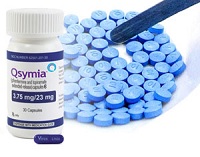 Nine hundred sales reps are out in the field promoting Orexigen's ($OREX) obesity med Contrave, thanks to the company's marketing partner, Takeda. But for what?
Nine hundred sales reps are out in the field promoting Orexigen's ($OREX) obesity med Contrave, thanks to the company's marketing partner, Takeda. But for what?
Takeda reported $12.8 million in Q3 sales, compared with the $14 million that a rival drug from Vivus ($VVUS) hauled in over the same period, RBC Capital Markets analyst Simos Simeonidis pointed out in a recent note to clients. The difference? Vivus has 50 reps behind its product, Qsymia.
Contrave does lead Qsymia and Arena's ($ARNA) Belviq in market share, garnering 41% of total branded obesity scripts in the week ended Oct. 30, according to Leerink Partners research. Qsymia grabbed just 30%, and Belviq brought up the rear with 29%.
But net sales were down 20% quarter over quarter, indicating that even though scripts grew 11% over Q2, the "growth came at the expense of fairly significant discounts," Simeonidis wrote.
"Contrave is being hit with the same harsh realities of the obesity market facing its competitors in the space," he said, noting that "the obvious question for us is 'at which point is Takeda starting to think that Contrave may not get to where they thought it would when they signed on to promote it…'"
 There are plenty of reasons why the obesity market has been slow to develop, Vivus CEO Seth Fischer pointed out in August. Docs' reluctance to prescribe, public and private payer resistance, and a lack of widespread patient awareness have all put a damper on its growth.
There are plenty of reasons why the obesity market has been slow to develop, Vivus CEO Seth Fischer pointed out in August. Docs' reluctance to prescribe, public and private payer resistance, and a lack of widespread patient awareness have all put a damper on its growth.
But Vivus, as opposed to its competitors, is holding off on shelling out--partly because of market obstacles, but partly because it just can't afford it. When it announced its second salesforce scale-back in as many quarters, Fischer said the company would "continue to monitor market conditions for any positive developments with physicians, payers and patients that may indicate an increased investment is warranted."
That's not to say Vivus couldn't use a Big Pharma marketing partnership like the ones Orexigen and Arena share with Takeda and Eisai, respectively. The company is fast approaching the deadline for data from a postmarketing cardiovascular outcomes trial that it hasn't even begun, and with $300 million in debt, its $25 million in Q3 sales isn't going to be enough to pick up a $200 million to $250 million trial tab.
Of course, Orexigen's own partnership isn't going to save it any money in the trial department. Earlier this year, the La Jolla, CA-based drugmaker blabbed some early results from its ongoing study, leading investigators to cancel the trial and sparking Takeda's ire. In order to keep Takeda from walking, Orexigen vowed to fund the redo itself--a promise that'll cost it $210 million.
Special Reports: Limited attention span? Focus on these market shake-ups in 2015 | 10 top drug launch disasters